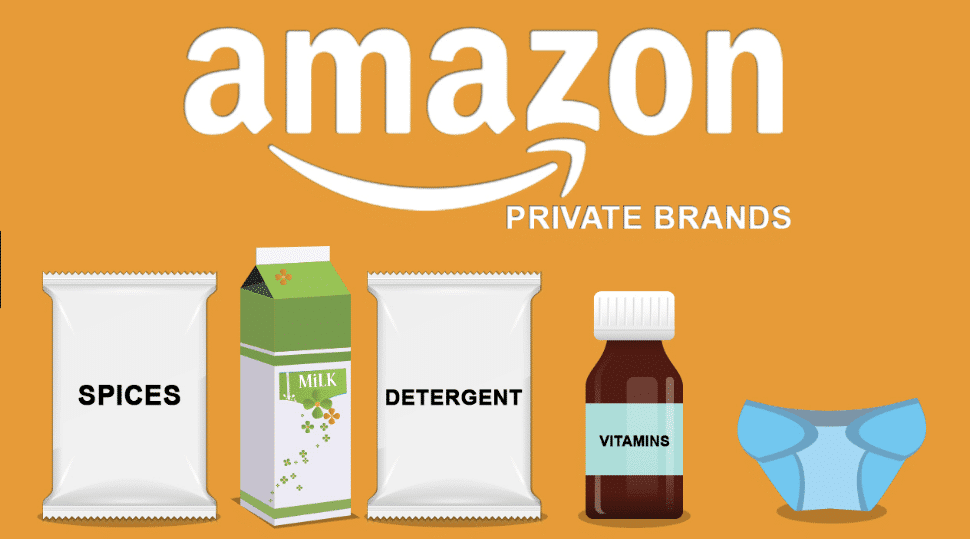


With its broad reach over the Web, the online giant Amazon has been accused of being a primary contributor to many retail setbacks. The so-called “Amazon Effect,” a term applied to their ongoing competitive edge and its attempts to reduce it, has been discussed online and in the news media.
Amazon genera quasi la metà di tutte le vendite e-commerce e i suoi prezzi e le sue catene di fornitura continuano a dominare e a mettere sotto pressione molte aziende di vendita al dettaglio.
However, an even larger and more exciting narrative is lost in the speculation of the showdown of Amazon and Walmart or the impact of its Whole Foods acquisition. Something that must be brought to the list of factors that keep retailers nervous is Amazon’s swiftly evolving plans for private branding. The potential for the company to accelerate store-owned products is almost guaranteed to come to fruition. Here are the reasons why:
A carefully orchestrated private brand can produce better-quality products at lower prices for consumers. Many store brands are sought after to the same degree as more popular name brands, and they are no longer viewed as generic or of low quality. The trend will likely continue, and it benefits Amazon heavily in its emerging mercato dei marchi privati goods.
I marchi proprietari rappresentano una quota consistente delle vendite di Amazon. Alcuni di questi sono beni di largo consumo venduti con il nome Amazon. Alcuni hanno nomi comuni, come Happy Belly e Mama Bear. Anche i loro prodotti di moda hanno nomi unici. Da quando Amazon ha acquisito Whole Foods, gestisce anche il marchio 365 Everyday Value, attualmente disponibile sul suo sito web. Alcune testate giornalistiche hanno recentemente riportato che l'abbigliamento sportivo sarà un'altra iniziativa imprenditoriale dell'azienda.
Sebbene le informazioni specifiche siano scarse, la maggior parte dei dati indica che Amazon sta ottenendo finora risultati elevati con i suoi prodotti a marchio. Molti di essi hanno registrato rapidi incrementi in termini di crescita e acquisti.
Consider the number and value of consumer data Amazon can maintain to create and target its collection of high-quality commodities. With products, the website controls over half of all online web searches. Furthermore, Amazon’s Alexa app gives precedence to its private brands. Consider how simple it will be for Amazon to prioritize the brands it wants to promote. Deliberate over the freedom Amazon has to think long term, especially with their large budget or the stock market’s patience in promoting growth over mere profit.
A causa delle sue dimensioni, Amazon dovrà conquistare maggiori quote di mercato nei segmenti in cui è già presente, cogliendo al contempo nuove e inaspettate opportunità. Affidarsi esclusivamente ai suoi servizi web per il profitto sarebbe una scelta poco saggia, e spostarsi verso fonti diverse da Internet sarà necessario per penetrare nuovi mercati. In ogni caso, i suoi marchi privati possono soddisfare molti di questi obiettivi a lungo termine.
In generale, gli obiettivi di Amazon in termini di private brand sono passati inosservati. Il gigante della vendita al dettaglio online potrebbe presto raggiungere il traguardo in molte categorie. Tuttavia, quando inizierà a portare le sue ambizioni al livello successivo, sia attraverso le vendite che attraverso l'acquisizione di un altro punto vendita operativo, sicuramente arriveranno altri marchi privati dell'azienda.
Per i concorrenti di Amazon è giunto il momento di allacciare le cinture di sicurezza.

"*" indicates required fields

"*" indicates required fields

"*" indicates required fields
You must be effettuato l'accesso to post a comment.